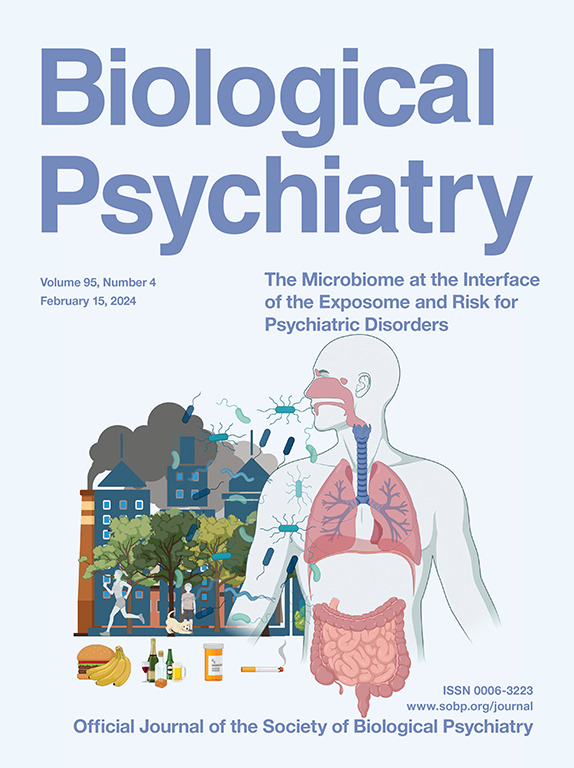Building Resilience: The Stress Response as a Driving Force for Neuroplasticity and Adaptation
IF 9
1区 医学
Q1 NEUROSCIENCES
引用次数: 0
Abstract
People exhibit an extraordinary capacity to adjust to stressful situations. Here, we argue that the acute stress response is a major driving force behind this adaptive process. In addition to immediately freeing energy reserves, facilitating a rapid and robust neurocognitive response, and helping to reinstate homeostasis, the stress response also critically regulates neuroplasticity. Therefore, understanding the healthy acute stress response is crucial for understanding stress resilience—the maintenance or rapid recovery of mental health during and after times of adversity. Contemporary resilience research differentiates between resilience factors and resilience mechanisms. Resilience factors refer to a broad array of social, psychological, or biological variables that are stable but potentially malleable and predict resilient outcomes. In contrast, resilience mechanisms refer to proximate mechanisms activated during acute stress that enable individuals to effectively navigate immediate challenges. In this article, we review literature related to how neurotransmitter and hormonal changes during acute stress regulate the activation of resilience mechanisms. We integrate literature on the timing-dependent and neuromodulator-specific regulation of neurocognition, episodic memory, and behavioral and motivational control, highlighting the distinct and often synergistic roles of catecholamines (dopamine and norepinephrine) and glucocorticoids. We conclude that stress resilience is bolstered by improved future predictions and the success-based reinforcement of effective coping strategies during acute stress. The resulting generalized memories of success, controllability, and safety constitute beneficial plasticity that lastingly improves self-control under stress. Insight into such mechanisms of resilience is critical for the development of novel interventions focused on prevention rather than treatment of stress-related disorders.
建立复原力:压力反应是神经可塑性和适应性的驱动力。
人们在面对压力时表现出非凡的适应能力。在这里,我们认为急性应激反应是这一适应过程背后的主要驱动力。除了立即释放能量储备、促进快速和强大的神经认知反应以及帮助恢复平衡之外,应激反应还对神经可塑性起着至关重要的调节作用。因此,了解健康的急性应激反应对于理解应激恢复能力(即在逆境中或逆境后保持或迅速恢复心理健康)至关重要。当代复原力研究将复原力因素(RFs)和复原力机制(RMs)区分开来。抗逆力因素指的是一系列广泛的社会、心理或生物变量,这些变量是稳定的,但具有潜在的可塑性,可以预测抗逆力的结果。相比之下,抗逆力机制指的是在急性应激状态下激活的近似机制,它能使个体有效地应对眼前的挑战。在本文中,我们回顾了与急性应激期间神经递质和激素变化如何调节 RMs 激活有关的文献。我们整合了有关神经认知、表观记忆以及行为和动机控制的时间依赖性和神经调节剂特异性调控的文献,强调了儿茶酚胺(多巴胺和去甲肾上腺素)和糖皮质激素的独特作用,而且往往是协同作用。我们的结论是,在急性应激期间,对未来预测的改善和基于成功的有效应对策略的强化增强了应激复原力。由此产生的对成功、可控性和安全性的普遍记忆构成了有益的可塑性,持久地提高了压力下的自我控制能力。深入了解这种抗压机制对于开发新型干预措施至关重要,这些干预措施的重点是预防而不是治疗与压力有关的疾病。
本文章由计算机程序翻译,如有差异,请以英文原文为准。
求助全文
约1分钟内获得全文
求助全文
来源期刊

Biological Psychiatry
医学-精神病学
CiteScore
18.80
自引率
2.80%
发文量
1398
审稿时长
33 days
期刊介绍:
Biological Psychiatry is an official journal of the Society of Biological Psychiatry and was established in 1969. It is the first journal in the Biological Psychiatry family, which also includes Biological Psychiatry: Cognitive Neuroscience and Neuroimaging and Biological Psychiatry: Global Open Science. The Society's main goal is to promote excellence in scientific research and education in the fields related to the nature, causes, mechanisms, and treatments of disorders pertaining to thought, emotion, and behavior. To fulfill this mission, Biological Psychiatry publishes peer-reviewed, rapid-publication articles that present new findings from original basic, translational, and clinical mechanistic research, ultimately advancing our understanding of psychiatric disorders and their treatment. The journal also encourages the submission of reviews and commentaries on current research and topics of interest.
 求助内容:
求助内容: 应助结果提醒方式:
应助结果提醒方式:


